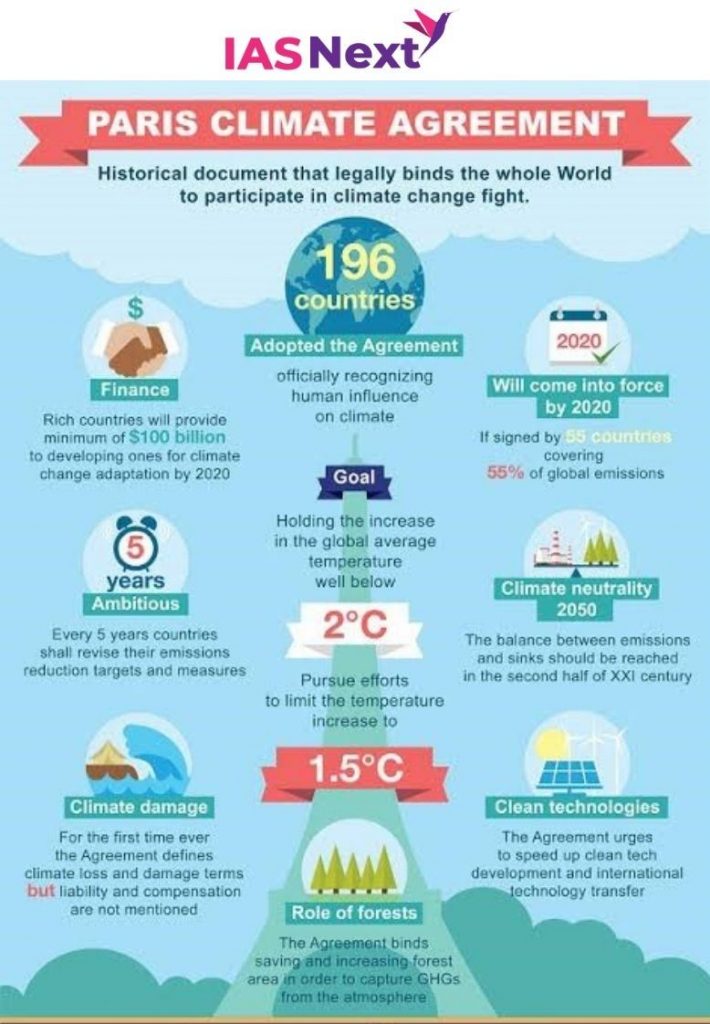CURRENT AFFAIRS
Get the most updated and recent current affair content on Padhaikaro.com
According to Paris Agreement goals, India’s fossil fuel production exceeds
- IAS NEXT, Lucknow
- 25, Oct 2021

The United Nations Environment Programme’s (UNEP) latest Production Gap Report has revealed that 15 of the top fossil fuel producing countries, including India, are not prepared to meet the requirements of the 2015 Paris Climate Agreement.
- Paris Agreement seeks to keep global warming “well below 2 degrees” above pre-industrial levels.
Highlights of the Production Gap Report:
- Governments are in aggregate planning to produce 110 per cent more fossil fuels in 2030 than would be consistent with limiting global warming to 1.5°C, and 45 per cent more than would be consistent with limiting warming to 2°C, on a global level.
- By 2040, this excess grows to 190% and 89%, respectively.
- The 15 countries analysed as part of the report were responsible for 75 per cent of the world’s fossil fuel production in 2020.
- They are Australia, Brazil, Canada, China, Germany, India, Indonesia, Kazakhstan, Mexico, Norway, Russia, Saudi Arabia, the United Arab Emirates (UAE), the United Kingdom (UK) and the United States (US).
What needs to be done?
In order for the world to meet the Paris Agreement goals, “global coal, oil, and gas production (and consumption) have to start declining immediately to be consistent with limiting warming to 1.5°C.”
India’s plans vs goals:
India is the seventh-largest producer of fossil fuels among the 15 countries.
- As part of the Paris Agreement, India pledged a 33%–35% reduction in the “emissions intensity” of its economy by 2030, compared to 2005 levels.
- However, as part of the Atmanirbhar Bharat campaign, the government pledged to become a self-reliant producer of coal and made a plan to invest Rs 500 billion worth of infrastructure for coal extraction.
Challenges ahead for India:
India doesn’t have a federal level policy on scaling down production of fossil fuels, or ensuring a just transition into renewable energy.
Why is there a need to limit the use of fossil fuels?
Global cost of air pollution from fossil fuels is high: It was around $2.9 trillion per year, or $8 billion per day, which was 3.3 per cent of the world’s GDP at the time.
- India is estimated to bear a cost of $150 billion from air pollution caused by fossil fuels
Overall Challenges ahead:
- As of now, human activities have already caused global temperatures to rise by about 1 degree Celsius above pre-industrial levels (1950-1900).
- Currently, countries’ emissions targets are not in line with limiting global warming to under 1.5 degrees.
Need of the hour for India:
- Reduce emphasis on domestic exploration.
- Increase productivity of producing fields.
- Increase strategic reserves.
- Restructure and reorganize public sector petroleum companies.
- Avoid siloed thinking.
